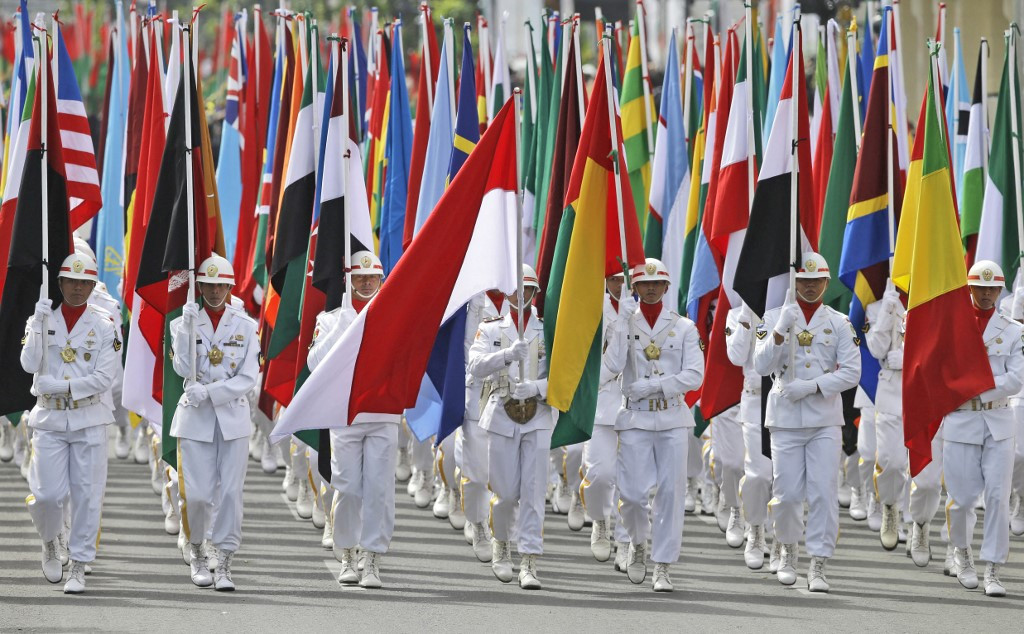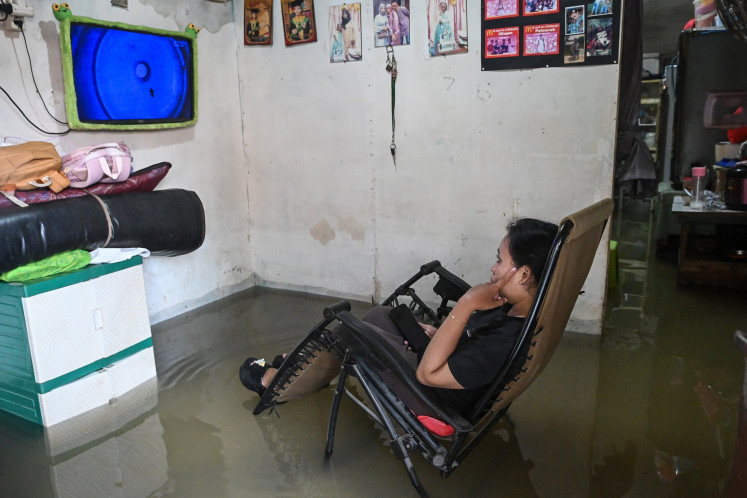Popular Reads
Top Results
Can't find what you're looking for?
View all search resultsPopular Reads
Top Results
Can't find what you're looking for?
View all search resultsA missed opportunity
Today, as the world grapples with the resurgence of protectionism and the unraveling of multilateralism, the principles of Bandung are more relevant than ever.
Change text size
Gift Premium Articles
to Anyone
S
eventy years ago, Indonesia stood at the forefront of a historic moment in Bandung, West Java, where leaders from Asia and Africa convened to forge a path of solidarity, self-determination and resistance against colonialism.
The Bandung Spirit, born from that conference, became a beacon for a nascent Global South, advocating for a world order rooted in equality and mutual respect.
Today, as the world grapples with the resurgence of protectionism and the unraveling of multilateralism, the principles of Bandung are more relevant than ever.
The recent escalation of trade tensions, marked by sweeping tariffs from the United States and other nontariff barriers from elsewhere, has disproportionately affected developing nations, exacerbating economic vulnerabilities and undermining global cooperation.
In this context, the 70th anniversary of the Asia-Africa Conference presented a unique opportunity for Indonesia to reaffirm its commitment to the Bandung principles and to lead a renewed call for unity among developing nations.
However, the muted commemoration of this milestone raises concerns about Indonesia's current stance and its role in championing the interests of the Global South.
President Prabowo Subianto's administration, while navigating complex domestic and international challenges, missed a pivotal moment to assert Indonesia's leadership on the global stage.
The absence of a robust initiative to commemorate the Bandung Conference and to engage with fellow developing nations reflects a departure from the proactive diplomacy that once defined Indonesia's foreign policy.
This reticence is particularly concerning given the current global climate. The imposition of unilateral trade measures has disrupted supply chains and heightened economic uncertainty, disproportionately impacting countries in the Global South. Developing nations are facing increased borrowing costs, currency volatility and reduced access to critical markets to keep their economies afloat.
In contrast, other nations have seized the moment to advocate for a more equitable global order. China, for instance, has positioned itself as a defender of multilateralism, calling for greater cooperation among developing countries to counteract protectionist policies.
Similarly, Brazil has emphasized the importance of strengthening alliances within the Global South to navigate the challenges posed by shifting global dynamics.
It would have been smart to gather the leaders of the Global South in Indonesia again in support of a multipolar and globalized world order, especially as some major power brokers have crisscrossed our region doing just that.
Indonesia's historical legacy and strategic position would have uniquely qualified it to lead such efforts.
The Bandung Spirit is not merely a relic of the past but a guiding framework for addressing contemporary challenges. Our collective problem may no longer come in the form of colonialism as we used to know it, but the principles that emerged from the Asia-Africa Conference remain relevant even today.
By revitalizing its commitment to these principles, Indonesia can play a crucial role in fostering solidarity among developing nations and advocating for a more inclusive and just international system.
The current administration must recognize that leadership entails more than domestic governance; it requires active engagement in shaping the global discourse. We need to do more than join BRICS to hold the fort together for other countries to speak on our behalf.
Reinvigorating the Bandung Spirit through more concrete actions – such as convening international forums, proposing collaborative economic initiatives and championing the rights of developing nations in global institutions – would reaffirm Indonesia's dedication to the ideals it once helped to establish.
In an era marked by fragmentation and uncertainty, the world looks to nations with a history of principled leadership to chart a course forward.
Indonesia has the opportunity – and the responsibility – to rise to this occasion, honoring its past by shaping a more equitable future for the Global South.











